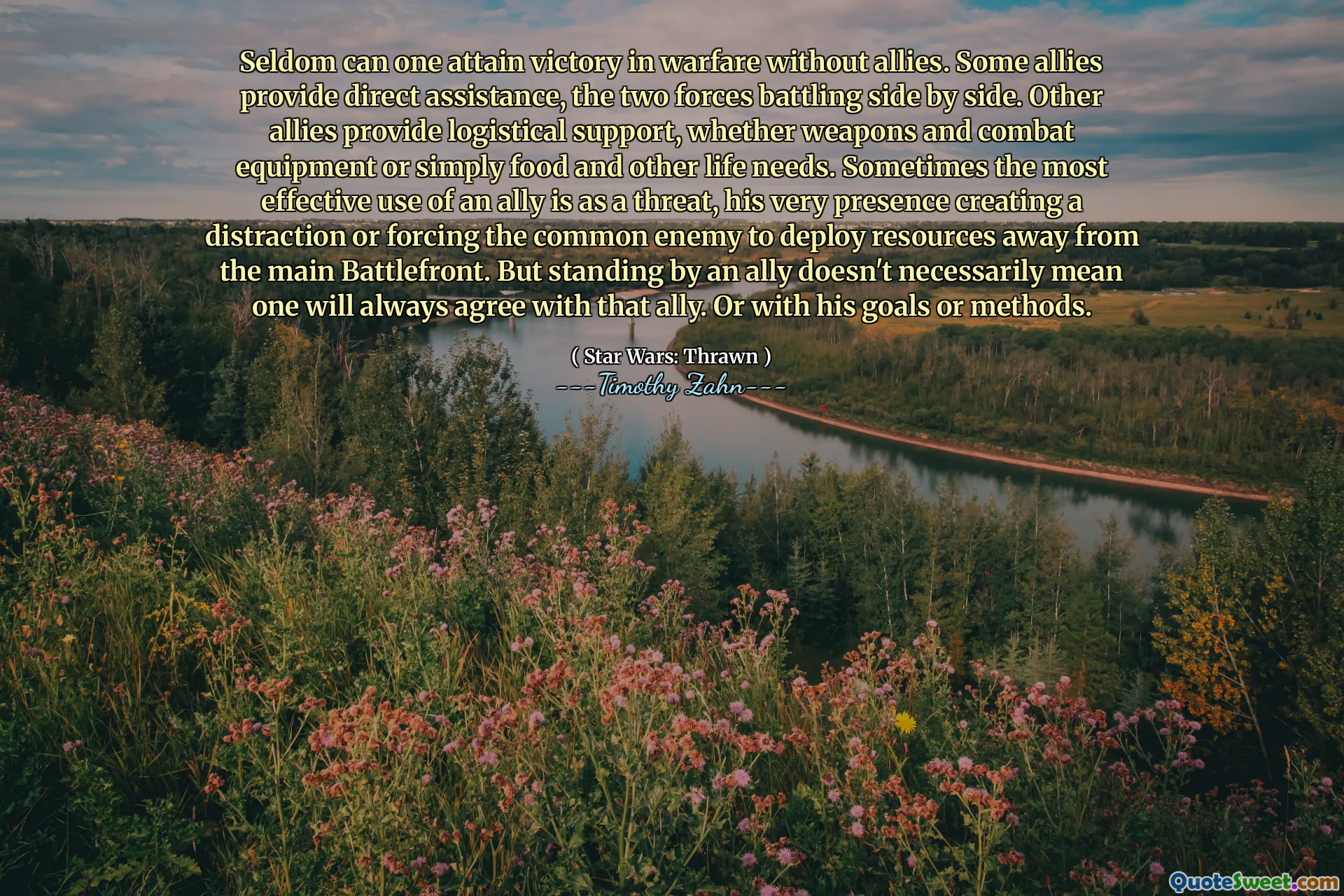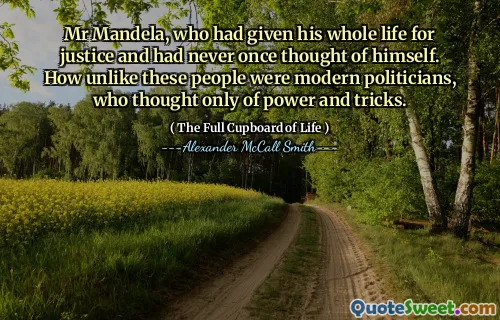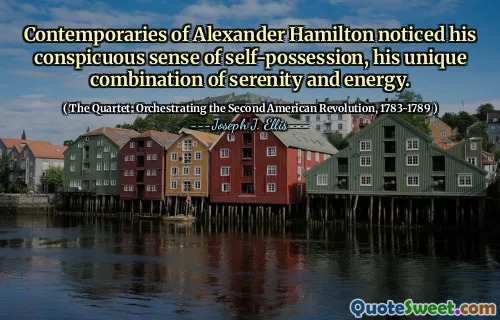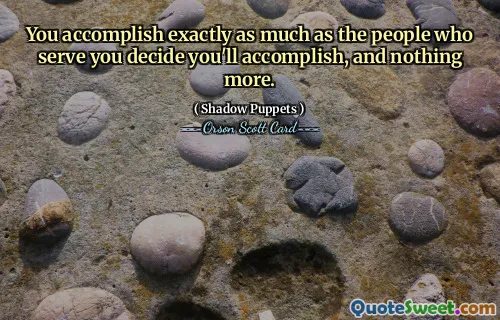
Seldom can one attain victory in warfare without allies. Some allies provide direct assistance, the two forces battling side by side. Other allies provide logistical support, whether weapons and combat equipment or simply food and other life needs. Sometimes the most effective use of an ally is as a threat, his very presence creating a distraction or forcing the common enemy to deploy resources away from the main Battlefront. But standing by an ally doesn't necessarily mean one will always agree with that ally. Or with his goals or methods.
This quote underscores the multifaceted nature of alliances in conflict situations, illustrating that having allies is often essential for achieving victory, yet these alliances are complex and sometimes fraught with contradictions. In strategic terms, allies serve various roles—from direct combat support to logistical aid—highlighting that collaboration can take multiple forms depending on the circumstances. Logistical support, such as providing supplies or infrastructure, can be just as pivotal as active participation in battle, often tipping the scales in favor of one side. Moreover, cleverly leveraging an ally's presence as a strategic threat illustrated in the quote shows an astute understanding of psychological warfare; the fear of escalation or diversion draws enemy focus and resources. A critical insight from the quote is the acknowledgment that alliances do not necessarily imply alignment of goals, methods, or values. Political and tactical disagreements are inevitable, yet the pragmatic choice to work together remains. This reflects real-world diplomatic and military complexities, where stakeholders often must navigate cooperation and conflict simultaneously. The quote serves as a reminder that alliances are tools with strategic purposes rather than absolute endorsements, emphasizing flexibility and strategic thinking in both warfare and broader contexts of collaboration. Ultimately, it points to the nuanced realities of partnership, highlighting that alliances are as much about strategic utility whether aligned in purpose or not.






